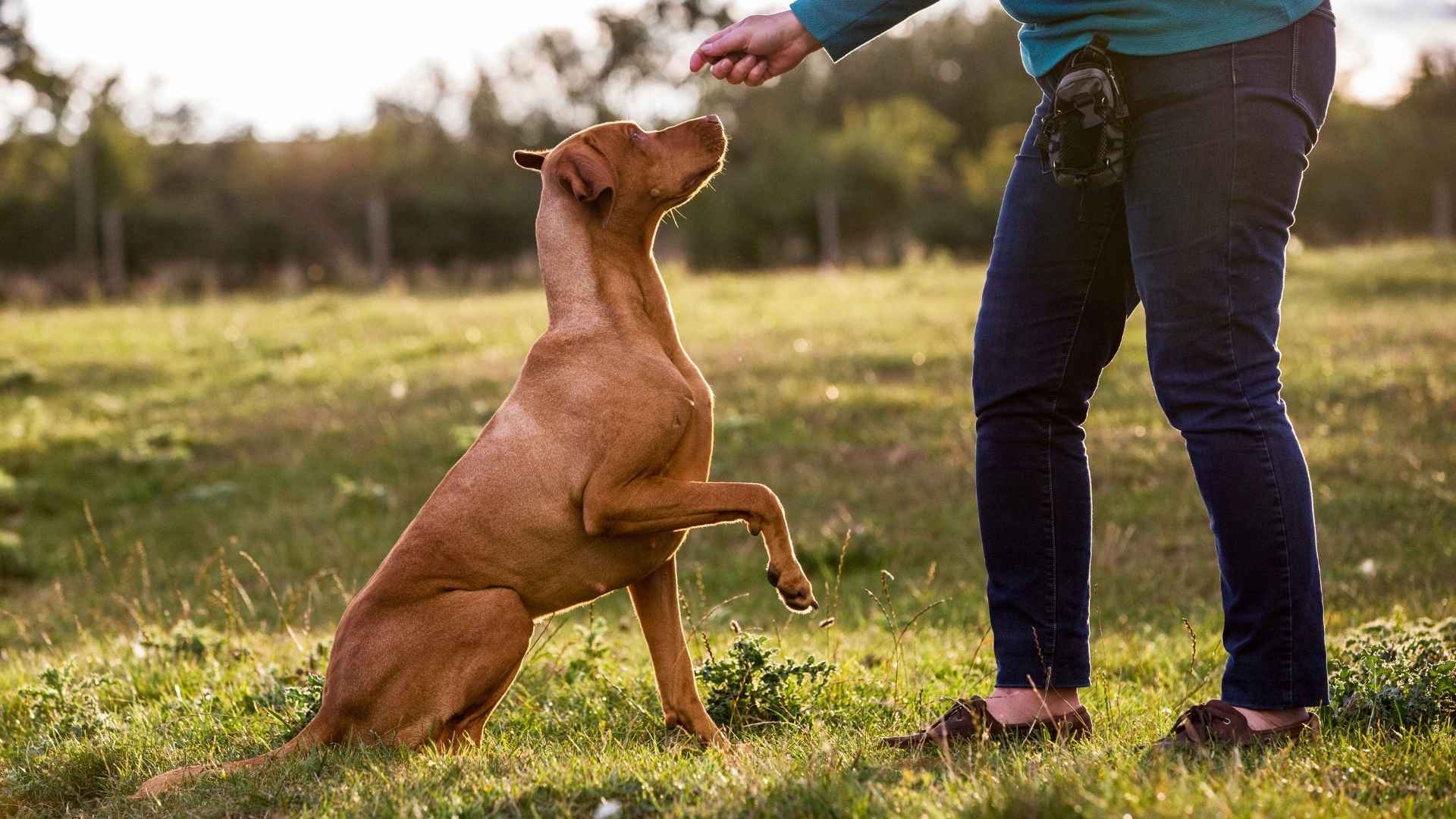Some dogs are eager to please, while others have a mind of their own. Strong-willed dogs fall into the latter category, displaying intelligence, confidence, and stubbornness that can challenge even experienced owners.
These independent canines often have a dominant personality, requiring firm leadership, consistent training, and plenty of mental stimulation to thrive. Without proper guidance, they may push boundaries and take control of their environment.
Owning a strong-willed dog can be both rewarding and demanding. Their determination and resilience make them excellent working dogs, protectors, and companions, but they also need structured discipline and patience.
If you’re up for the challenge, these dogs can form deep, loyal bonds and impress you with their problem-solving skills. Before bringing one home, you must understand its temperament and training needs. Let’s explore what makes these dogs unique and whether they’re the right fit for you!
Strong-Willed Dog Breeds
1. Siberian Husky
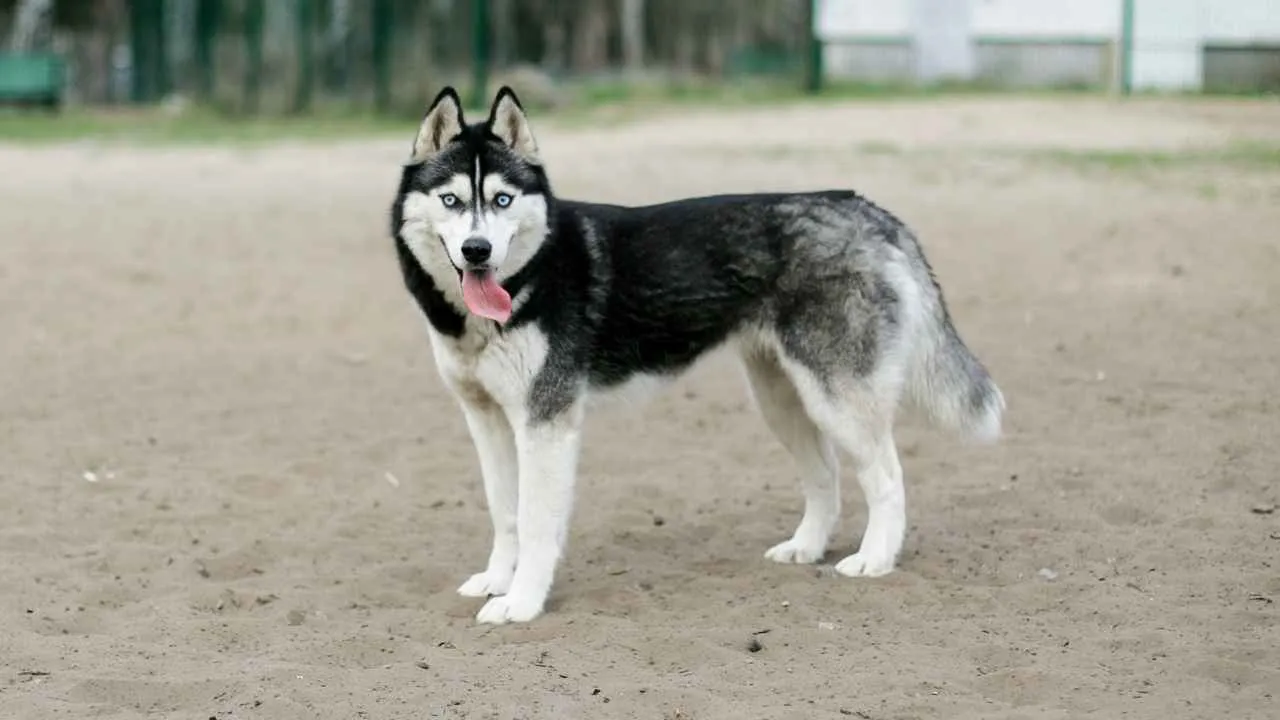
Siberian Huskies are one of the most well-known strong-willed breeds. Originally bred to pull sleds in harsh Arctic conditions, they are independent, intelligent, and full of energy. Their working background makes them highly determined, often following their instincts rather than commands. While they are affectionate and social, their stubborn nature can make training a challenge.
Hillspet states that Huskies have an independent mindset. Huskies think for themselves. They are problem solvers and will quickly figure out how to escape a yard, open doors, or get what they want. This independence makes them fascinating companions but requires experienced handling.
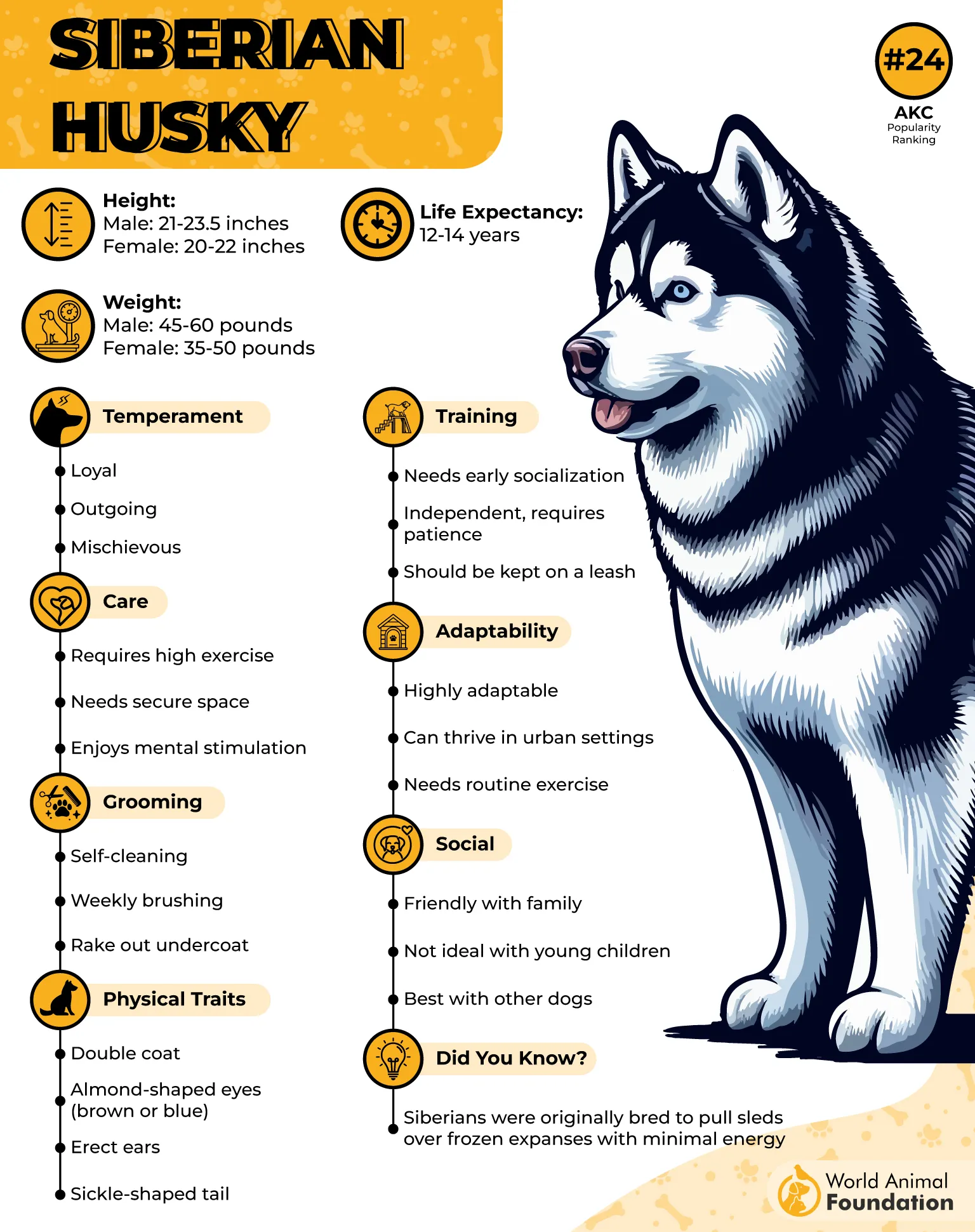
Training a Husky requires patience and consistency. They are known to test boundaries and will only follow commands if they find them worth obeying. Positive reinforcement works best, but owners must establish firm leadership. Without proper training, they can become unruly and difficult to control.
Siberian Huskies also have a strong prey drive. Their instincts push them to chase small animals, making them unreliable off-leash. Even well-trained Huskies may ignore recall commands if something catches their attention. This trait makes them more suited for secure yards and leashed walks.
Another reason Huskies are considered strong-willed is their endless energy. They need intense physical and mental stimulation to stay happy. They become destructive and may resort to digging, chewing, or excessive howling without proper exercise. Their stubbornness, combined with high energy, can overwhelm inexperienced owners.
Despite their challenging nature, Siberian Huskies are incredibly loyal and fun-loving. They thrive in active households, receiving structured training and plenty of exercise. They become affectionate, adventurous companions who never fail to entertain their owners if given proper care and firm leadership.
2. Jack Russell Terrier
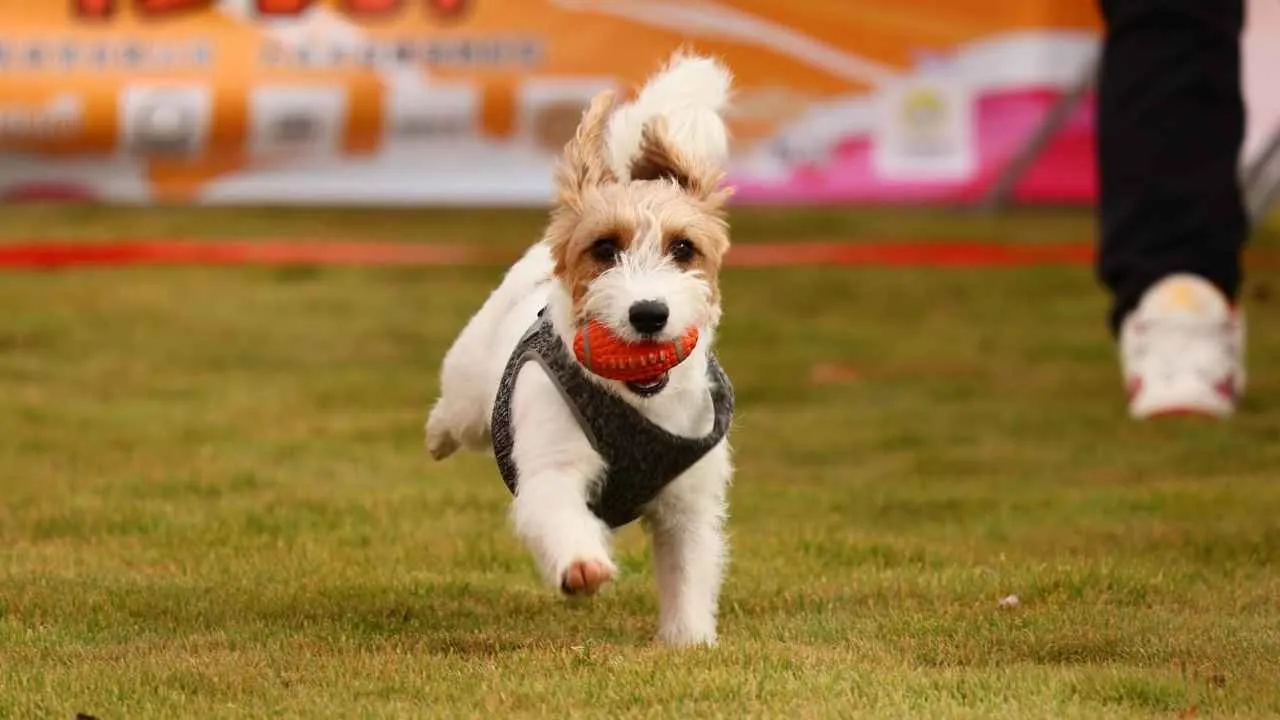
The Jack Russell Terrier is known for its fearless attitude and unwavering determination. Originally bred for fox hunting, this small but mighty dog has a tenacious spirit that drives it to follow its instincts, no matter the circumstances. Their strong-willed nature makes them independent thinkers, often challenging even experienced owners with their stubborn behavior.
Jack Russell does not always listen to commands, displaying a strong sense of self-reliance. Their selective hearing kicks in when they are focused on an interesting scent or chasing prey.
They are quick learners, but their intelligence comes with a desire to do their own thing. Training requires firm leadership and patience, as they will constantly test boundaries.
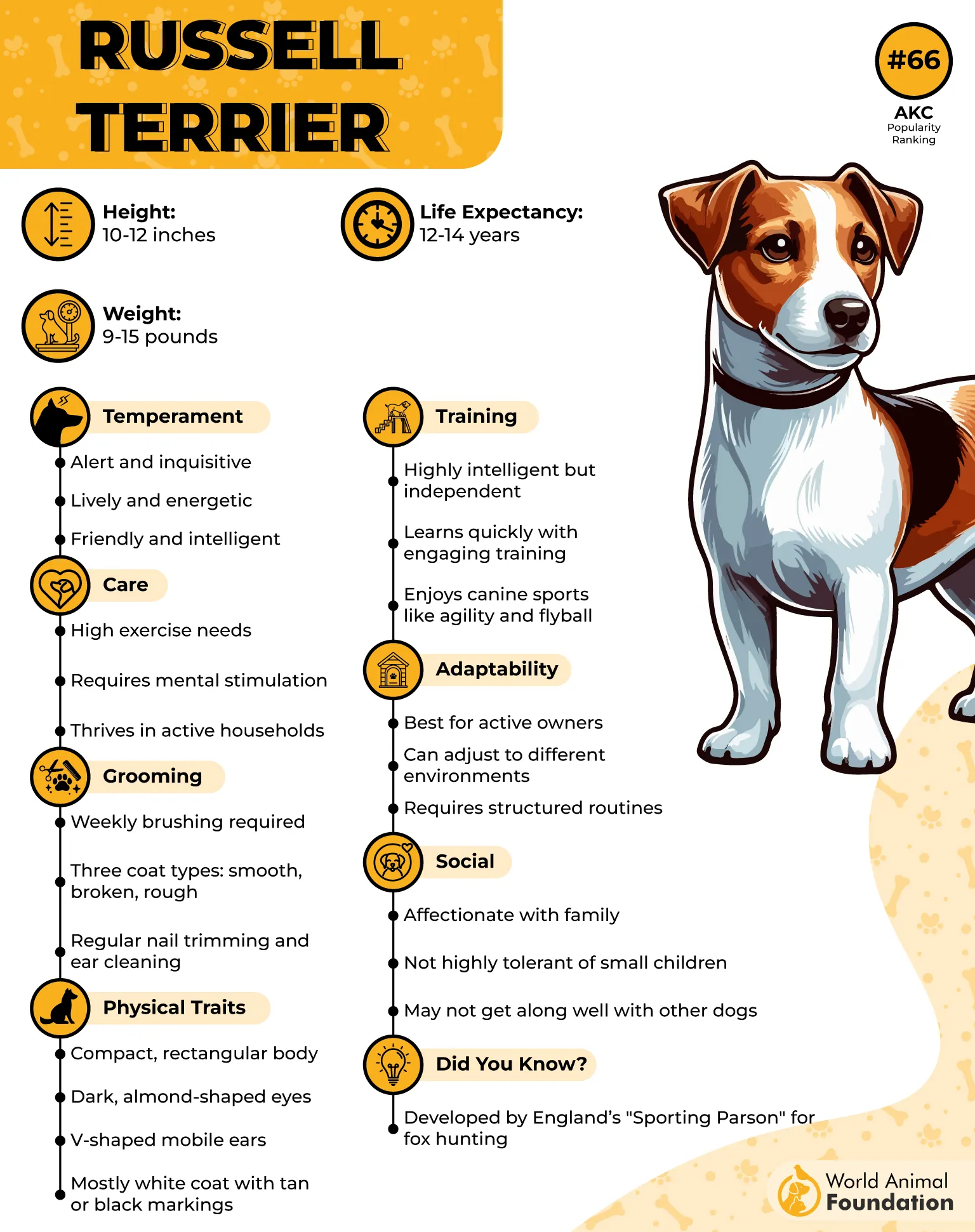
Their independent streak makes them difficult to control if not properly trained from an early age. They are naturally confident, often standing their ground against other dogs, regardless of size. This boldness can lead to dominance issues, making early socialization crucial. Without proper guidance, they may develop aggressive or defiant tendencies.
Jack Russells were bred to work alone, making decisions without human intervention. This strong-willed temperament is still evident today, as they prefer to take charge rather than follow orders. Owners must establish authority early and remain consistent in their approach.
Jack Russells are highly vocal, using their voice to express excitement and frustration or to demand attention. Their determination to communicate can become excessive if not managed with training. They need clear boundaries to prevent excessive barking or destructive behaviors.
Despite their headstrong nature, Jack Russells are incredibly loyal and affectionate. They thrive in homes where their energy and intelligence are channeled into productive activities. For owners who appreciate a bold, determined companion, this stubborn dog breed can be an incredibly rewarding pet.
3. Chow Chow
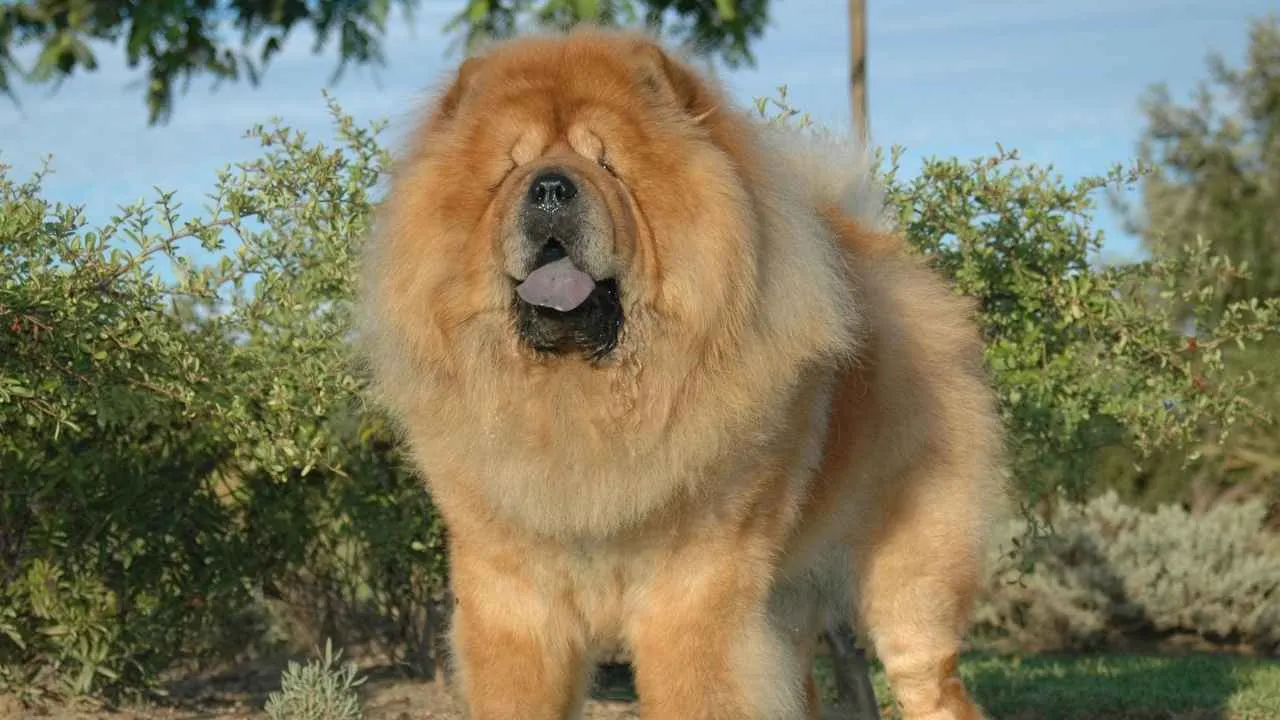
The Chow Chow is known for its dignified and independent personality; this breed demands respect rather than blindly following commands. Chows have a mind and prefer to make decisions based on their instincts. Their confidence and aloofness make them best suited for experienced owners who understand handling a strong-willed pet.
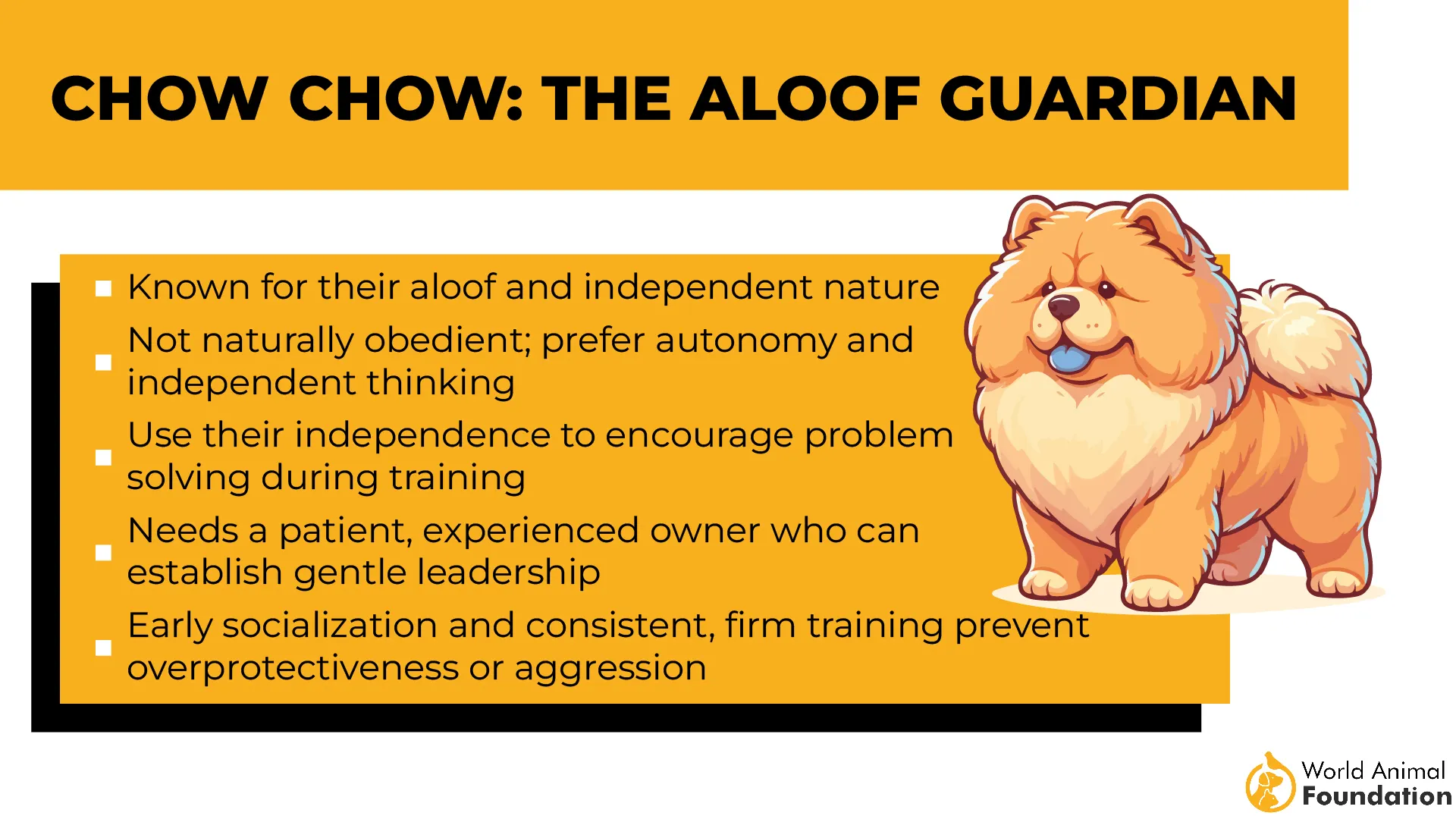
Chow Chows are known for their independent streak. They do not easily submit to authority and will test boundaries if not properly trained. Establishing leadership is crucial, as they will only listen to someone they acknowledge as a leader.
Without clear and firm guidance, they may become stubborn and uncooperative. Consistency and patience are essential when training this breed.
AKC states the Chow Chow has a history of working roles, including guarding and even herding. This background has contributed to their self-sufficient nature. They are naturally reserved and may not always seek affection, preferring to interact on their terms. This strong sense of independence can make them challenging for first-time dog owners.
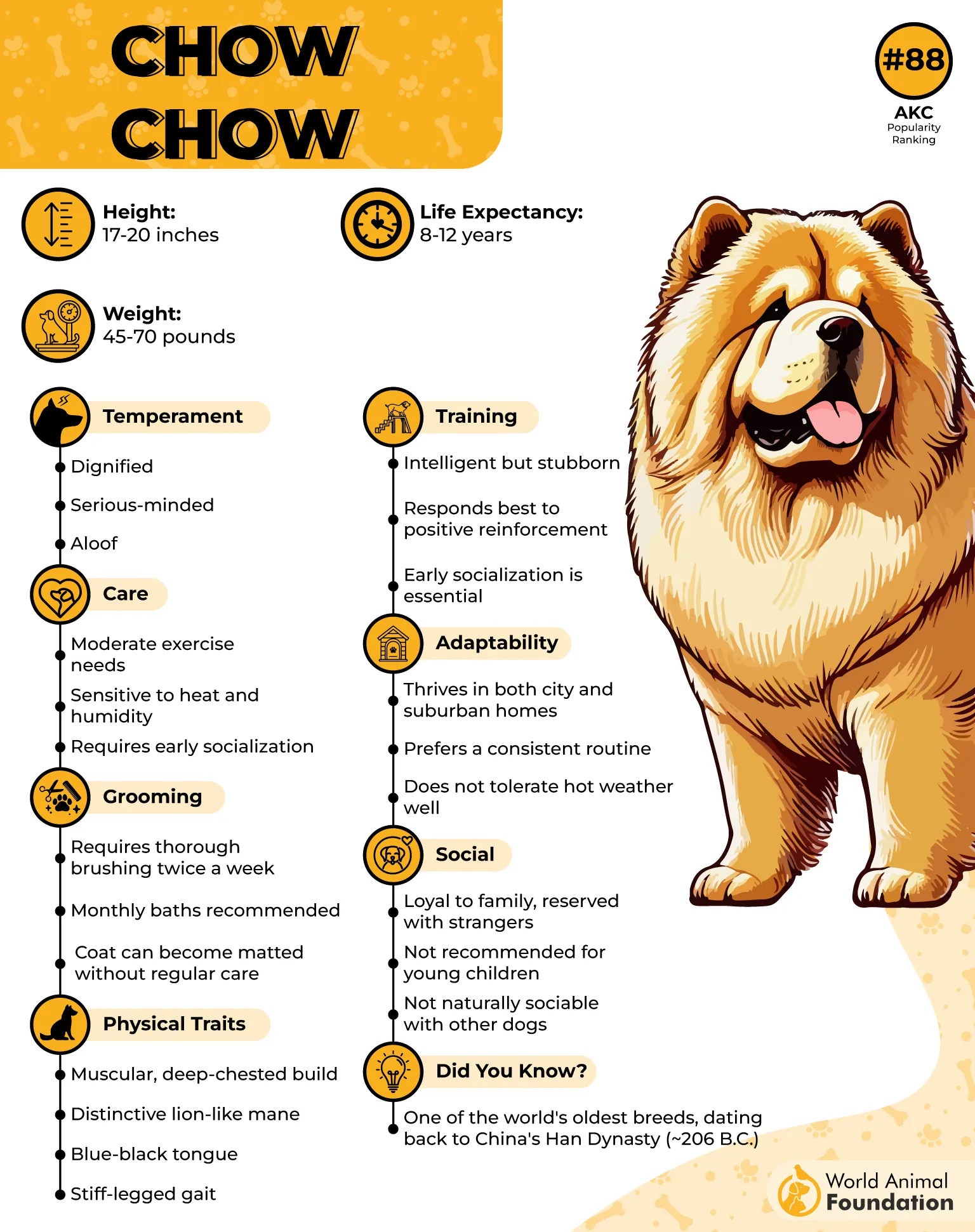
Their strong-willed nature means they do not tolerate rough handling or inconsistency, making early training and socialization crucial. They require structured discipline to prevent dominant behaviors.
Socialization is essential to prevent their natural aloofness from turning into aggression or excessive territoriality. They are naturally wary of strangers and other animals, requiring proper introductions to avoid defensive behavior. Their respect must be earned through fair and firm training rather than forceful commands.
Chow Chows are incredibly loyal and protective of their owners. The Chow Chow can be a devoted and dignified companion for those who appreciate a dog with an independent personality.
4. Chinese Shar-Pei
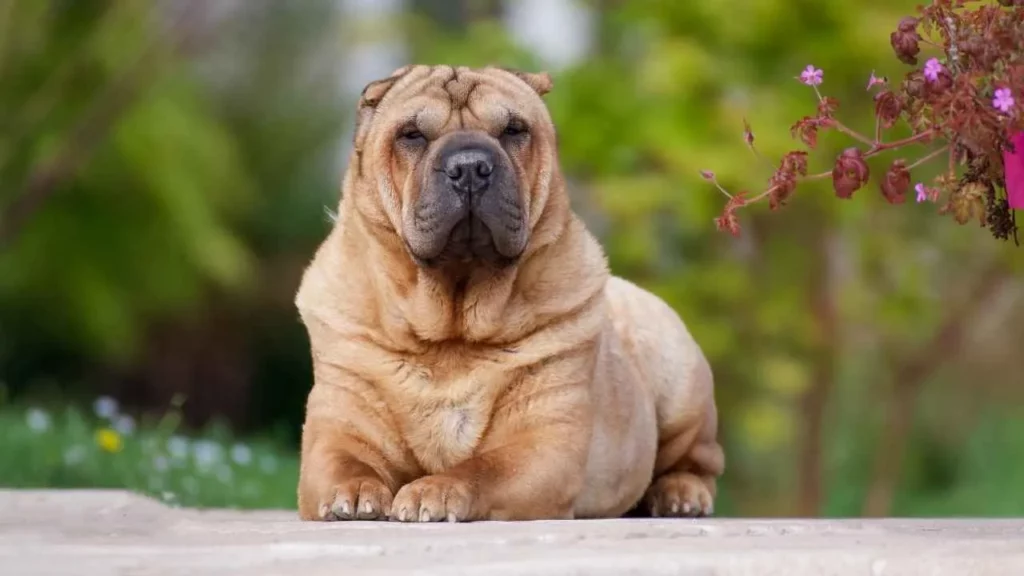
The Chinese Shar-Pei is one of the most stubborn dog breeds, known for its independent nature and strong-willed temperament. Shar-Peis have a stubborn streak that can make training a challenge. They are highly intelligent but prefer to think for themselves, often choosing when and if they want to follow commands.
Shar-Peis are often considered among the most stubborn dogs because they ignore commands when they see no benefit in following them. They require structured training sessions from a young age to ensure they develop good manners and respect for authority.
Without consistent training, they can become dominant and difficult to control. Positive reinforcement and firm, patient guidance are essential to managing their strong personalities.
Shar-Peis are more reserved but still require regular mental and physical stimulation. Their stubborn nature means they may resist activities they are not interested in, so training should be engaging and varied. Frequent training sessions work best, as they are likely to lose interest in repetitive exercises.
Their strong personalities make them naturally protective, often displaying wariness toward strangers. They are loyal to their families but do not seek constant affection. Their aloof demeanor can sometimes be mistaken for disinterest, but they form deep bonds with their owners and are highly devoted once trust is established.
Shar-Peis are a stubborn breed, requiring a confident owner who can set clear boundaries without being harsh. They do not respond well to forceful training methods and resist commands if pressured. A calm, assertive approach works best, ensuring they view their owner as a trusted leader rather than an opponent.
Chinese Shar-Pei is an extremely intelligent and loyal companion. Those willing to put in the effort offer a unique blend of independence, dignity, and devotion. With the right training and socialization, they become well-mannered, confident dogs that respect their owners while maintaining their characteristic self-reliance.
5. Shiba Inu
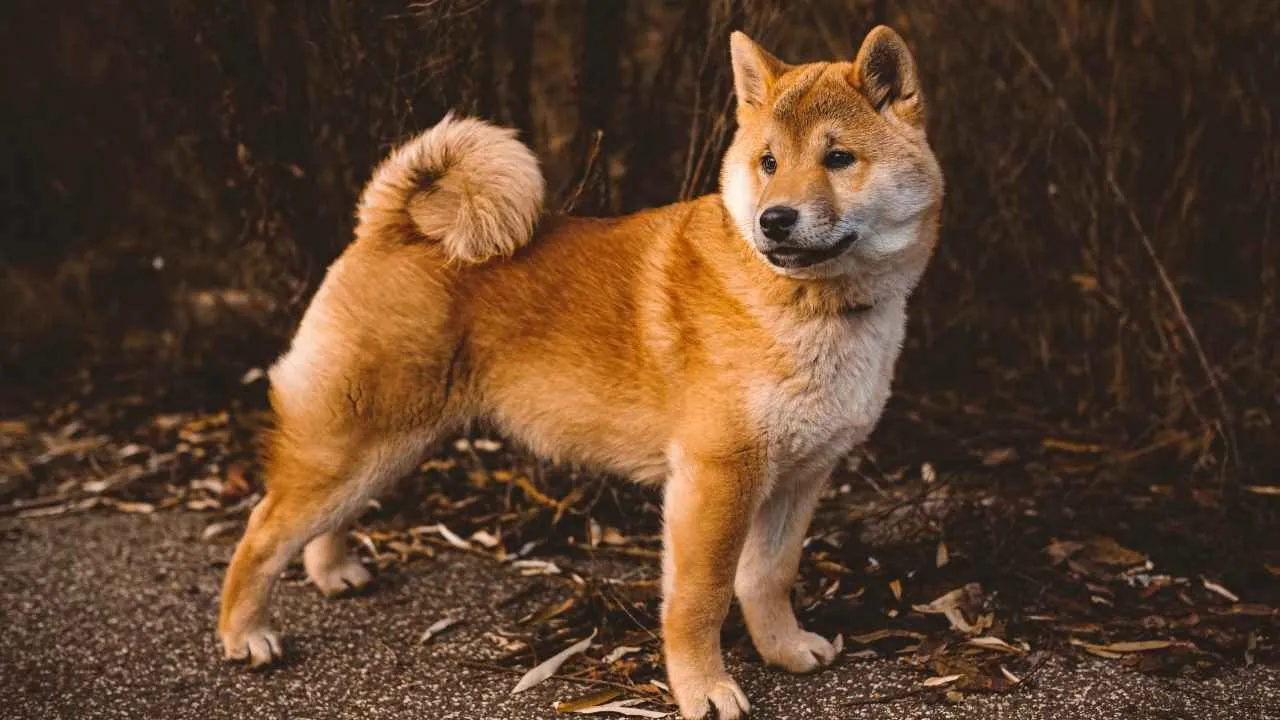
The Shiba Inu is a small yet fiercely independent dog. Originating from Japan, this breed was historically used for hunting small game. They have bold personalities, high intelligence, and stubborn natures. Despite their compact size, they have a big-dog attitude and demand respect from their owners.
Training a Shiba Inu can be challenging. They are intelligent but not eager to please, like other breeds. They prefer to do things their way, often ignoring commands if they see no benefit.
Positive reinforcement and early socialization are essential to shape their behavior. They can develop a stubborn streak. Without firm leadership, training is frustrating.
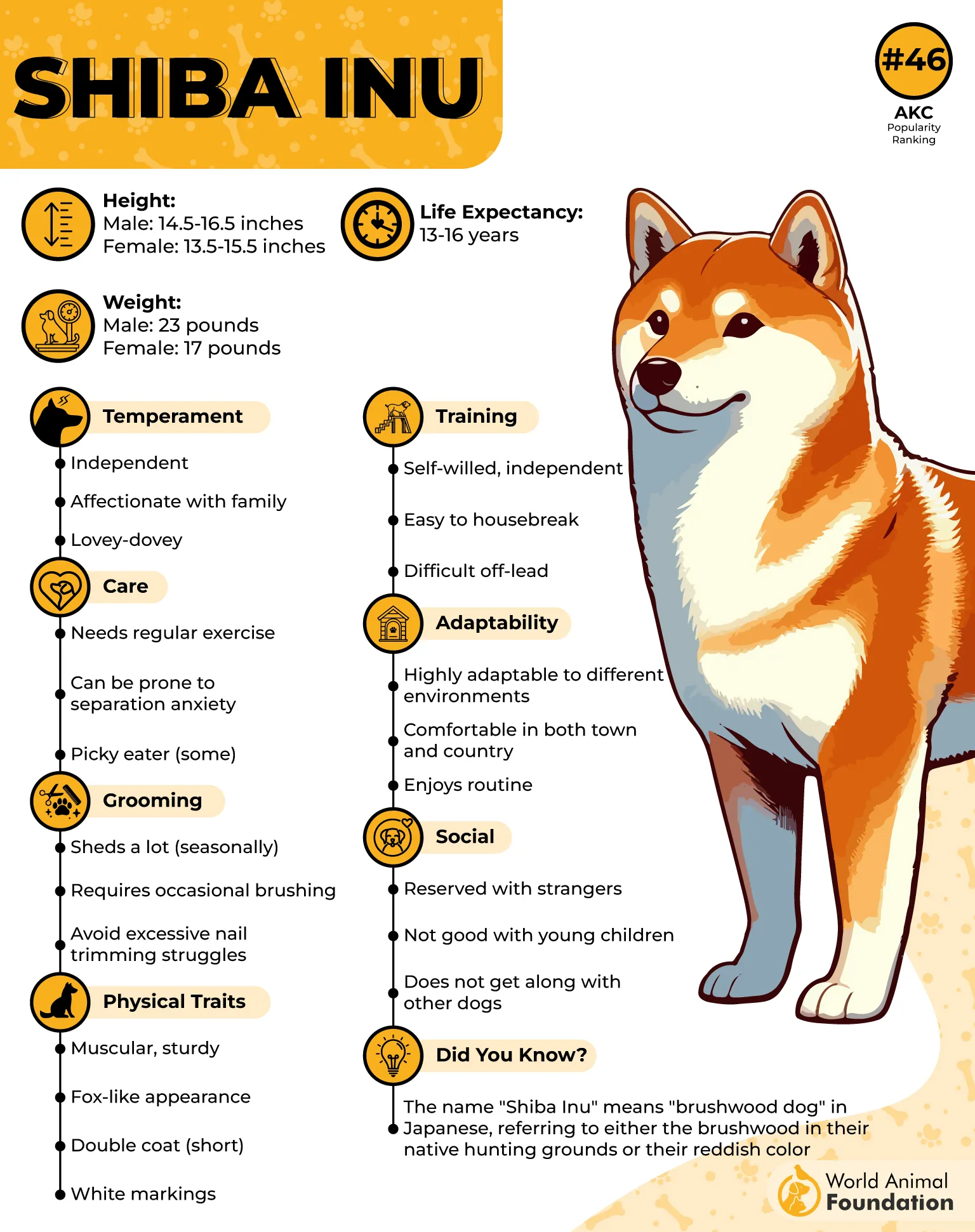
Petplan states that Shiba Inus are known for their aloofness and independence. They are not overly affectionate. They enjoy companionship on their terms and may resist excessive cuddling. However, they form deep bonds with their owners and show loyalty uniquely.
One of their most famous traits is the “Shiba scream.” When unhappy or excited, they produce a loud, high-pitched vocalization that surprises many first-time owners. This dramatic reaction can happen during vet visits, grooming, or when they don’t want to cooperate.
Shibas have a strong prey drive. Their hunting instincts make them prone to chasing small animals. Because of this, they should always be kept on a leash or in a securely fenced yard. Their curiosity and independence can lead them to escape attempts if they find an opportunity.
Owning a Shiba Inu requires patience, consistency, and respect for their independence. They are not ideal for first-time dog owners, but can be incredibly rewarding for those who understand their temperament. With the right approach, they become confident, well-behaved companions who bring challenge and charm to their owners’ lives.
7. Akita
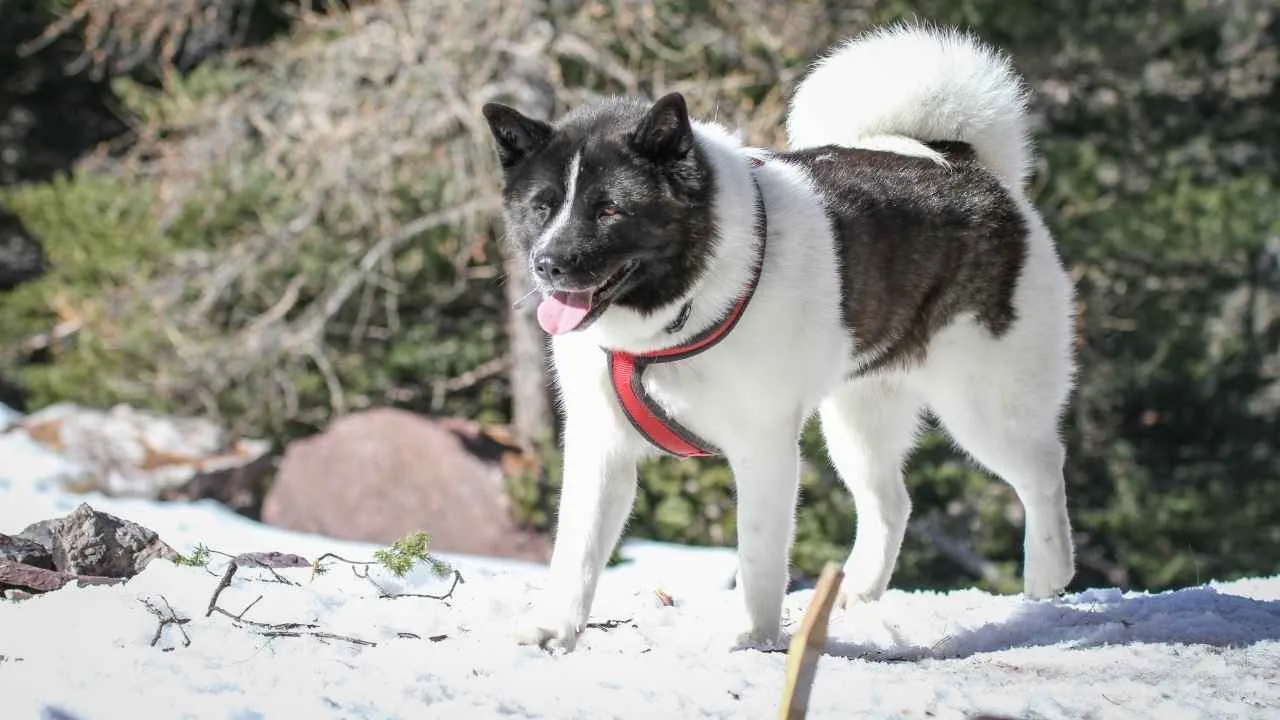
The Akita is a large, powerful dog with a strong will and independent mindset. Originally bred in Japan for hunting and guarding, they are known for their loyalty, confidence, and dominance. Akitas form deep bonds with their families but are naturally reserved with strangers, making them excellent watchdogs.
Training an Akita requires experience and patience. They are intelligent but not always eager to follow commands. Their independent streak means they may ignore instructions if they don’t see the purpose. Akitas require consistency and leadership. Without firm guidance, they can develop stubborn tendencies.
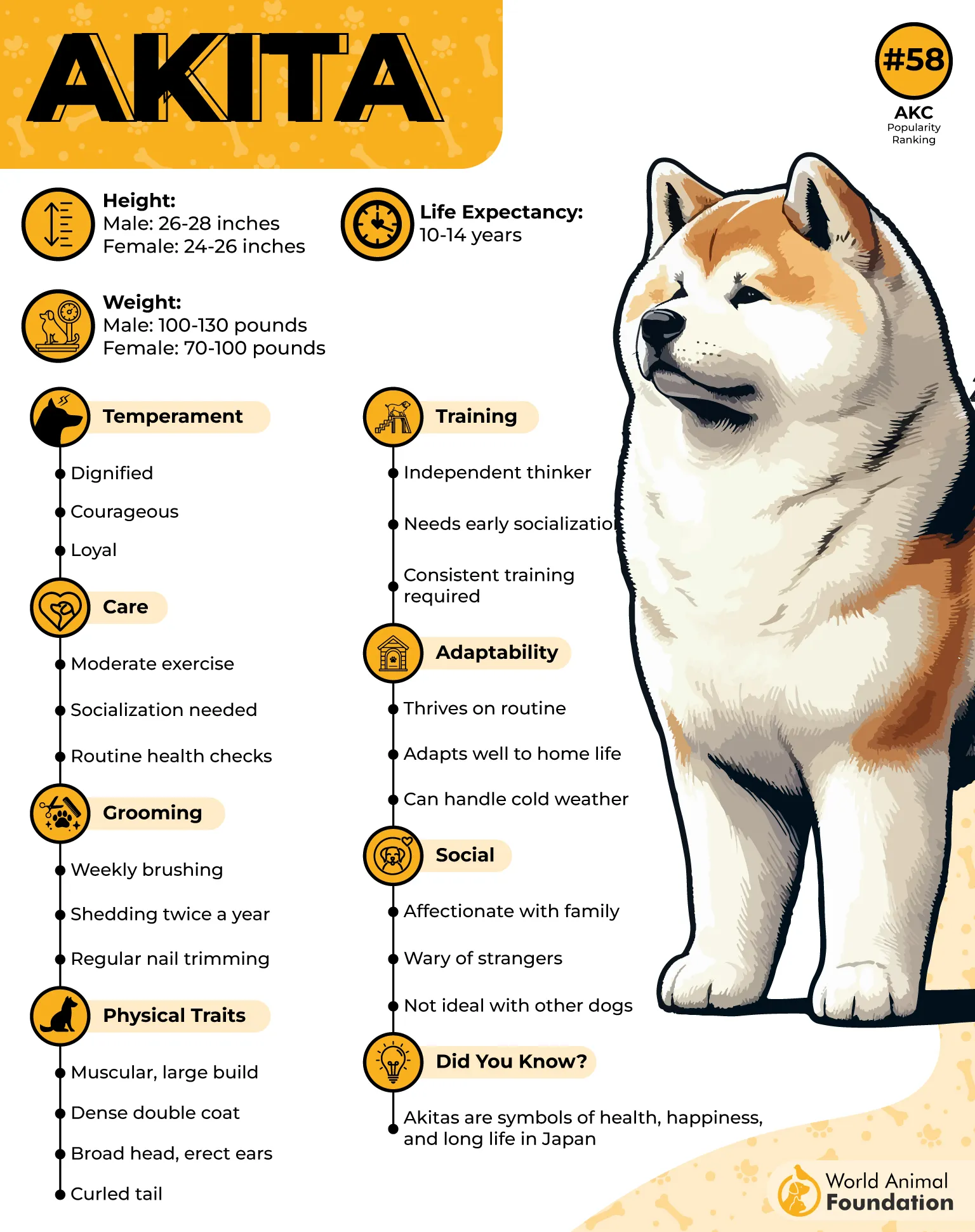
PDSA states that Akitas are known for their strong guarding instincts. They are naturally protective and can be territorial, especially around unfamiliar people and animals. They may develop aggressive tendencies without proper training and exposure to different environments.
This breed is generally quiet and dignified but highly alert. Akitas don’t bark excessively. Instead, they observe their surroundings and react only when necessary. Their calm yet dominant demeanor makes them an impressive presence, requiring a structured training approach.
Due to their dominance and strength, Akitas are not ideal for inexperienced dog owners. They need an assertive, confident leader who can provide firm boundaries and structure. Harsh training methods don’t work with them; they respond best to positive reinforcement and strong, clear guidance.
For the right owner, an Akita is a loyal and devoted companion. They thrive in homes where they receive respect, proper training, and a job. Their independent personality and protective nature require dedication, but they reward their owners with unmatched loyalty.
7. Rottweiler
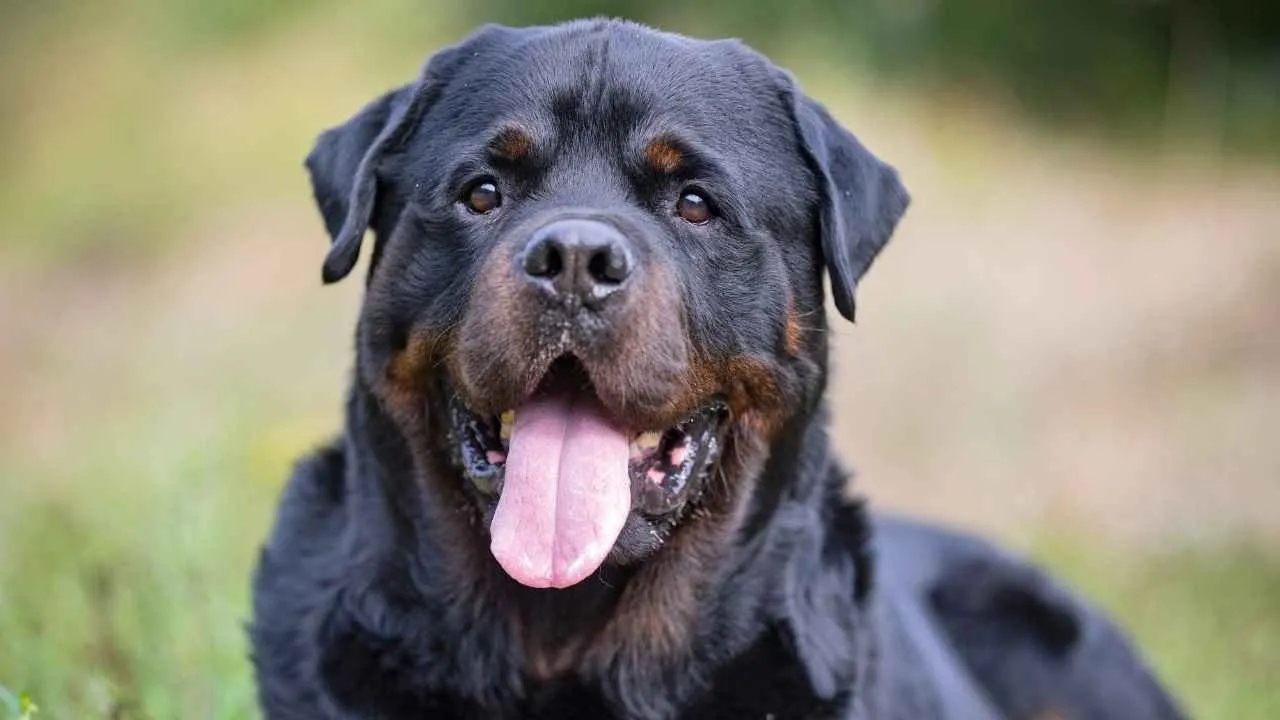
The Rottweiler is a powerful, intelligent breed with a strong will and natural protective instinct. Originally bred for herding and guarding, they are known for their confidence, independence, and loyalty. Their dominant personality makes them highly trainable, but only when handled by an experienced owner who understands firm leadership.
Training a Rottweiler requires dedication and patience. They are intelligent dogs but can be stubborn and headstrong, often testing boundaries. Starting training early is crucial to establishing leadership and setting clear expectations.
Without a certain level of consistency, they may develop undesirable behaviors or become overly dominant. Proper training ensures they grow into well-mannered and controlled companions.
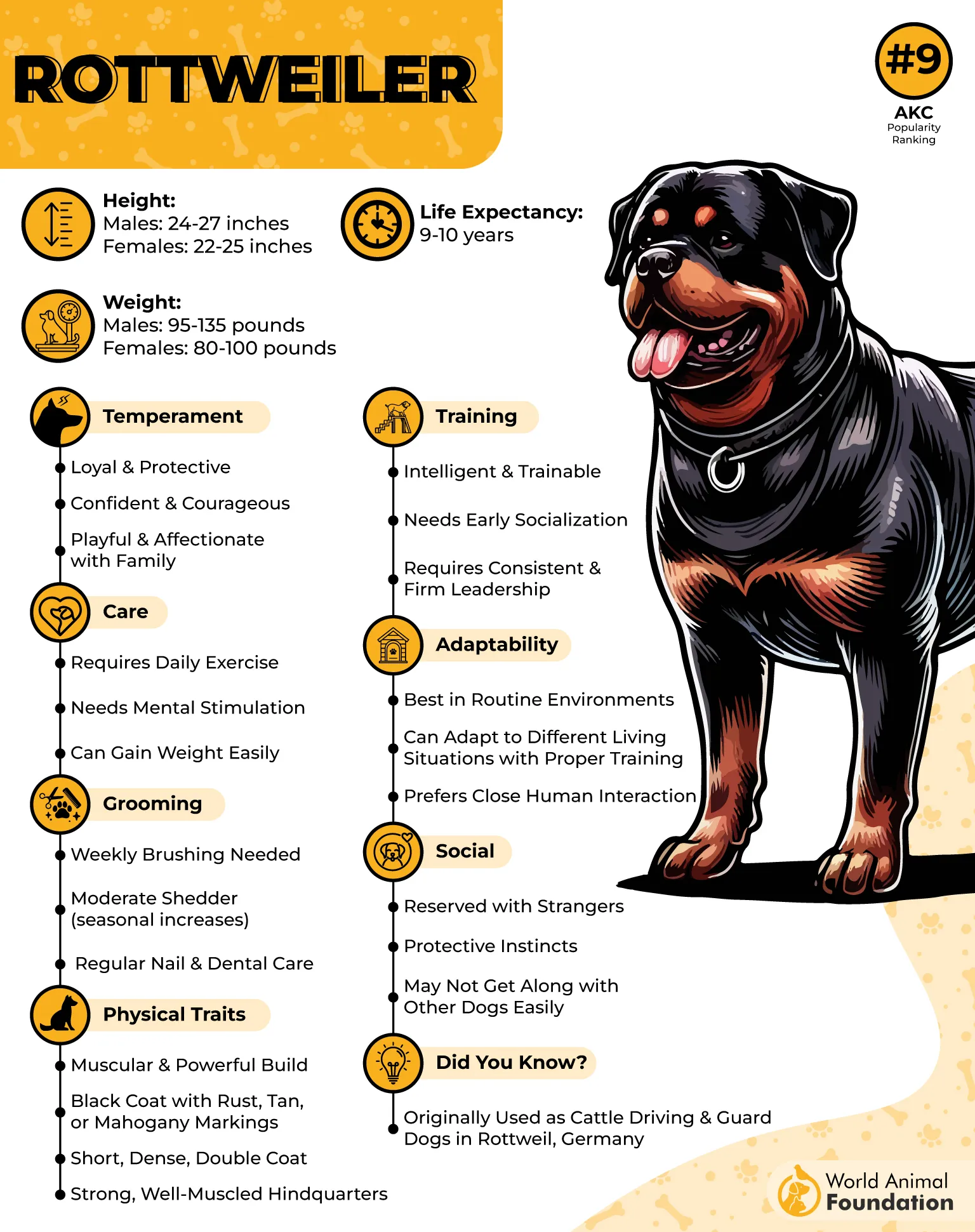
Rottweilers have strong guarding instincts, making them excellent watchdogs. They are naturally wary of strangers and will not hesitate to protect their family if they sense a threat. However, socialization is essential to prevent excessive aggression or territorial behavior. With the right guidance, they can be both protective and well-adjusted.
Despite their tough exterior, Rottweilers are deeply loyal and affectionate toward their families. They form strong bonds with their owners and thrive on companionship.
Their independent thinking means they need firm but fair discipline. Rottweilers will push limits if they sense a lack of leadership. Positive reinforcement and clear and consistent rules are key to managing their strong personality.
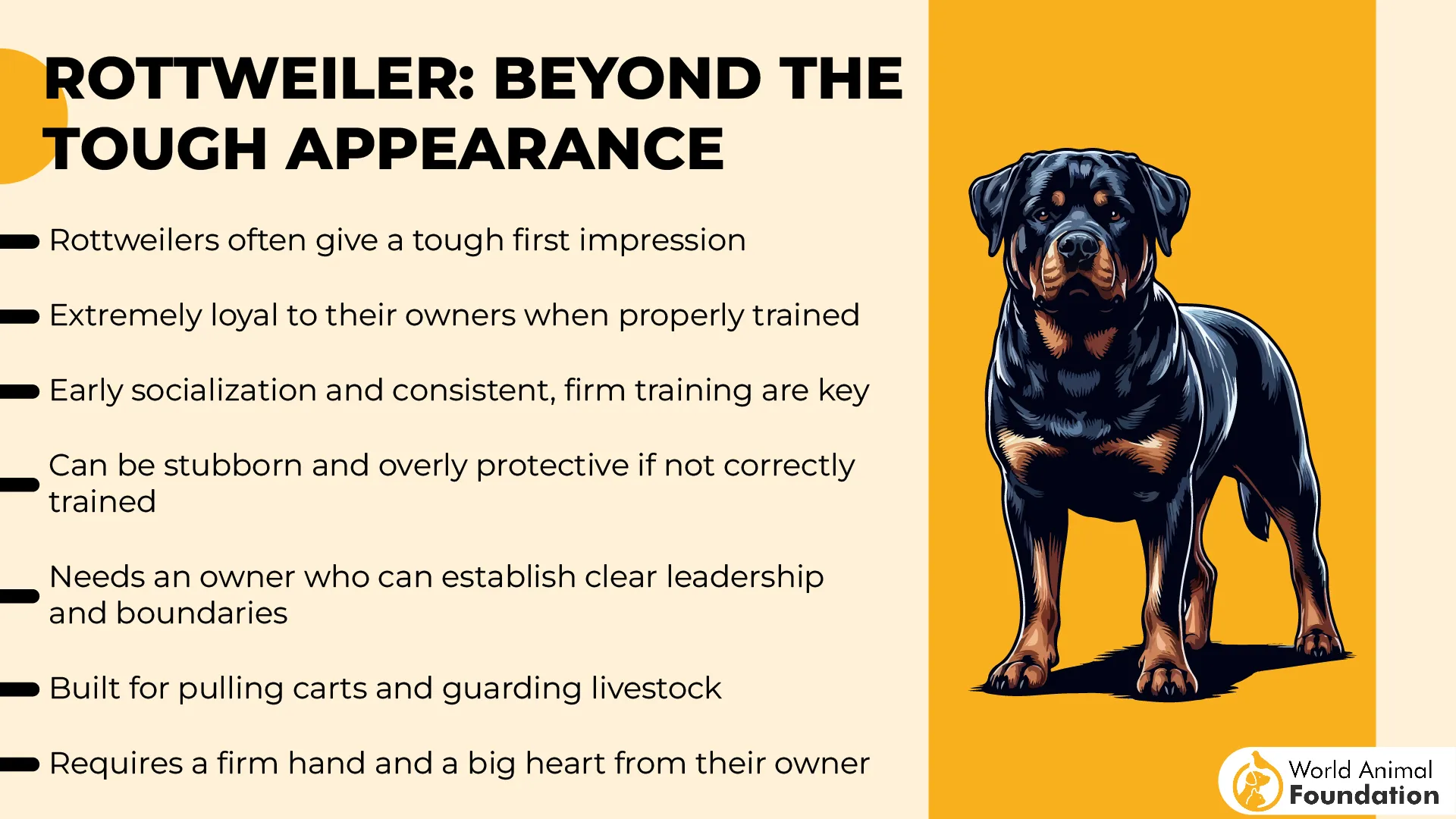
The rottweiler is a loyal, intelligent, and powerful companion. They require firm training, early socialization, and a dedicated leader. They become well-behaved, devoted family members if given the right guidance while maintaining their strong-willed nature and natural guarding instincts.
Conclusion
Strong-willed dogs, like the Scottish Terrier, Dachshund, and Beagle, are known for their independent nature and determination. Dachshunds were bred to hunt badgers, while Beagles, with their boundless energy, excel at tracking scents, making them naturally persistent.
Even the elegant Afghan Hound, once favored by Chinese royalty, carries a streak of independence. While some stubborn pups may require professional help for training, breeds like the Basset Hound and Golden Retriever balance their strong will with a more trainable disposition.
Whether it’s a barkless dog or one bred for bull baiting, understanding the instincts of these dogs helps owners navigate their unique personalities in today’s world.


